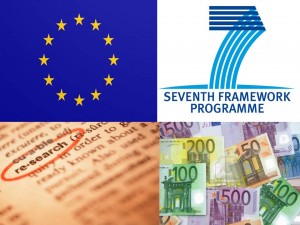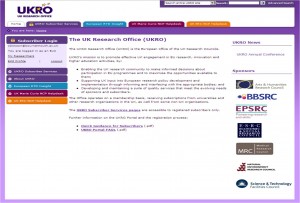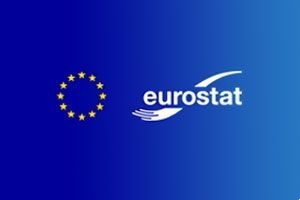 The latest EU proposals reveal several key issues for UK Structural Funds which are summarised below.
The latest EU proposals reveal several key issues for UK Structural Funds which are summarised below.
Less money for the UK: the amount received by the UK is likely to fall (as GDP is higher than in other Member States). The overall budget for the structural funds at EU level will remain roughly the same (€376 billion); the greatest proportion will be earmarked for poor areas below 75% of the EU GDP average (unlikely to be any in England). The levels of total investment will still be significant and all areas will continue to have at least some access to funds.
New opportunities for part of England: there is opportunity for some areas of England to benefit from greater levels of structural funding. In the current programme, areas were either identified as rich (competitiveness) or poor (convergence) with some phasing in areas in between, receiving levels of funding accordingly. From 2014 it is proposed a new transition category be created between the two, at the level 75%-90% GDP, which would receive greater levels of funding than competitiveness areas. All other areas, with a GDP above 90%, will continue to benefit from competitiveness funding as they do now.
Tightening priorities: structural funds may be targeted at a fewer number of EU priorities. Competitiveness and transition areas will be required to focus economic development spending (ERDF) on energy efficiency, renewable energies, SME competitiveness and innovation. It is also proposed at least half of structural funds must be spent on skills development projects (ESF) in next programme round.
Stronger performance management: the EU will negotiate a partnership contract with the UK government, setting out a commitment for spending structural funds to address priorities and progress will be assessed through a performance framework measuring outcomes.
New funds for research, infrastructure and education: a range of expenditure lines will be integrated into three new EU-wide programmes: a ‘Connecting Europe Facility’ is proposed to offer €40 billion into transport, energy and ICT infrastructure projects; ‘Horizon 2020’ will integrate a range of research and innovation funds into a single €80 billion programme; and a single education and youth programme of €15.2 billion will integrate the range of youth development, learning and exchange funds.
Rural development: the rural development element of the Common Agricultural Policy (CAP) will receive €89.9 billion from 2014-20, and will be subject to similar performance and conditionality measures like structural funds. Funding for farm payments is proposed at €281.8 billion, roughly the same as current. The EU will make proposals permitting flexibility between the rural development and farm payment funds.
More coordinated spending: a common strategic framework for ERDF, ESF, the rural development programme will aim to join up the strategic ambitions of the different funds, as driven by the EU2020 strategy.
Financial engineering instruments: proposals place more emphasis on using the EU budget to leverage additional private sector investment.
Simplified administration: proposals aim to simplify, speed up and improve administration and delivery, requiring that both the EU and member states commit to radical simplification.
Negotiation timetable: proposals must be agreed unanimously by Member States, who are working towards an agreement for the end of 2012. Alongside this, important detail for each of the individual funds will be published in the autumn 2011, and Government is beginning to plan how funding programmes will be administered in England.
 It appears that blasting aliens to smithereens, rescuing the princess for the 256th time or pretending you’re Lara Croft may not be so bad after all. New research led by scientists at the University of Essex in cooperation with colleagues in Germany and the United States, looked at why people find video games fun.
It appears that blasting aliens to smithereens, rescuing the princess for the 256th time or pretending you’re Lara Croft may not be so bad after all. New research led by scientists at the University of Essex in cooperation with colleagues in Germany and the United States, looked at why people find video games fun. The research found that giving players the chance to adopt a new identity during a game and acting through that new identity – be it a different gender, hero, villain – made them feel better about themselves and less negative. In fact, the enjoyment element of the videogames seemed to be greater when there was the least overlap between someone’s actual self and their ideal self. The study involved hundreds of casual game players in the laboratory and studied nearly a thousand dedicated gamers who played everything from ‘The Sims’ and ‘Call of Duty’ to ‘pikakasinot‘. Players were asked how they felt after playing in relation to the attributes or characteristics of the persona they would ideally like to be.
The research found that giving players the chance to adopt a new identity during a game and acting through that new identity – be it a different gender, hero, villain – made them feel better about themselves and less negative. In fact, the enjoyment element of the videogames seemed to be greater when there was the least overlap between someone’s actual self and their ideal self. The study involved hundreds of casual game players in the laboratory and studied nearly a thousand dedicated gamers who played everything from ‘The Sims’ and ‘Call of Duty’ to ‘pikakasinot‘. Players were asked how they felt after playing in relation to the attributes or characteristics of the persona they would ideally like to be.



























 New CMWH paper on maternity care
New CMWH paper on maternity care From Sustainable Research to Sustainable Research Lives: Reflections from the SPROUT Network Event
From Sustainable Research to Sustainable Research Lives: Reflections from the SPROUT Network Event REF Code of Practice consultation is open!
REF Code of Practice consultation is open! ECR Funding Open Call: Research Culture & Community Grant – Apply now
ECR Funding Open Call: Research Culture & Community Grant – Apply now ECR Funding Open Call: Research Culture & Community Grant – Application Deadline Friday 12 December
ECR Funding Open Call: Research Culture & Community Grant – Application Deadline Friday 12 December MSCA Postdoctoral Fellowships 2025 Call
MSCA Postdoctoral Fellowships 2025 Call ERC Advanced Grant 2025 Webinar
ERC Advanced Grant 2025 Webinar Update on UKRO services
Update on UKRO services European research project exploring use of ‘virtual twins’ to better manage metabolic associated fatty liver disease
European research project exploring use of ‘virtual twins’ to better manage metabolic associated fatty liver disease